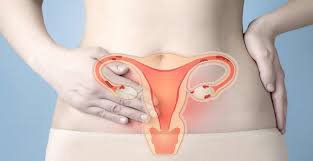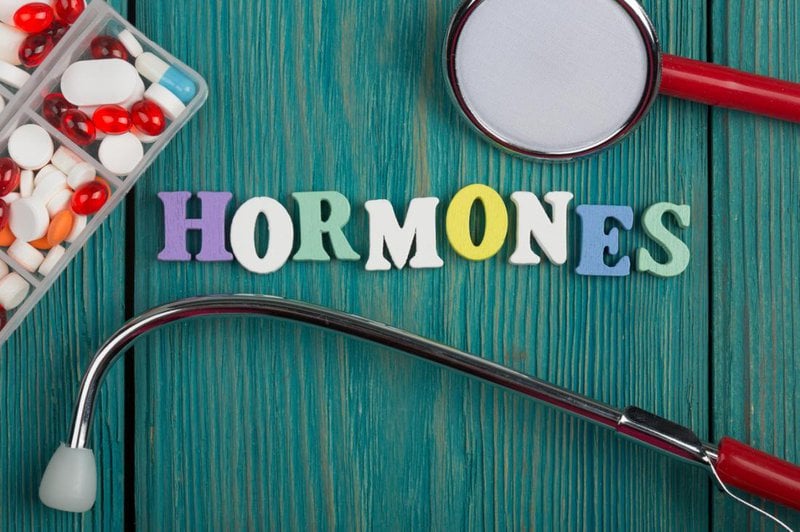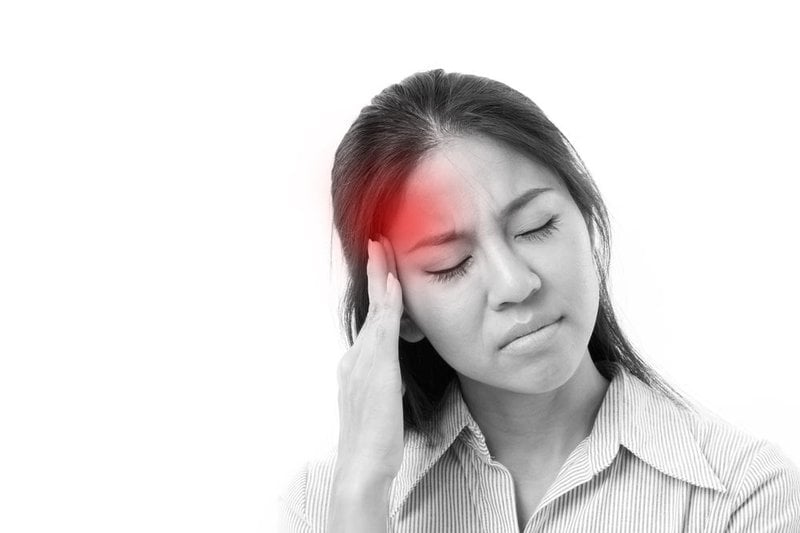Estrogen and Women's Emotions
This is an automatically translated article.
The article was professionally consulted with Specialist Doctor I Le Khac Hieu - Obstetrician and Gynecologist - Department of Obstetrics and Gynecology - Vinmec Ha Long International General Hospital.
Estrogen is a sex hormone, associated with a woman in different respects. The link between estrogen and women's emotions has been confirmed in many studies.
So far, it can be confirmed that estrogen is closely related to women's emotions. Depression and anxiety disorders affect women of reproductive age more than men or postmenopausal women. Estrogen has also been linked to emotional disorders that are unique to women, such as premenstrual syndrome or postpartum depression. But how estrogen affects emotions is a mystery.
1. How much estrogen is normal?
Starting at puberty, a woman's ovaries begin to release estrogen that varies with the monthly menstrual cycle. In the middle of the cycle, estrogen levels spike and peak, triggering ovulation. After that, estrogen levels will suddenly drop. During the rest of the time, estrogen levels will slowly rise and fall.

Buồng trứng nữ giới bắt đầu giải phóng estrogen khi vào tuổi dậy thì
Normal estrogen levels will fluctuate greatly. This variation is not only between two women on the same day of their menstrual cycle, but also between two different days of the menstrual cycle in the same woman. The actual estrogen levels measured are not predictive of emotional changes.
2. Estrogen and the brain
Estrogen is a big influence on emotions, because estrogen activity is present almost everywhere in the body, including the part of the brain responsible for emotions.
Some of the effects of estrogen include:
Increases serotonin and serotonin receptor numbers in the brain. Affects the production and effectiveness of endorphins - a substance with a positive effect. Protects nerves from damage, and most likely plays a role in the regulation of nerve development. What these effects of estrogen might mean for each individual woman is unpredictable. The action of estrogen is too complex to fully understand, for example, in contrast to the positive effects of estrogen on the brain, many women's emotions improve after they reach menopause, which In this case, their estrogen levels are very low.
Some experts believe that some women are more sensitive to the normal changes in estrogen during the menstrual cycle, and that it is the changes in estrogen levels during these reproductive years that cause emotions of those women changed.
Some of the effects of estrogen include:
Increases serotonin and serotonin receptor numbers in the brain. Affects the production and effectiveness of endorphins - a substance with a positive effect. Protects nerves from damage, and most likely plays a role in the regulation of nerve development. What these effects of estrogen might mean for each individual woman is unpredictable. The action of estrogen is too complex to fully understand, for example, in contrast to the positive effects of estrogen on the brain, many women's emotions improve after they reach menopause, which In this case, their estrogen levels are very low.
Some experts believe that some women are more sensitive to the normal changes in estrogen during the menstrual cycle, and that it is the changes in estrogen levels during these reproductive years that cause emotions of those women changed.

Phụ nữ nhạy cảm hơn khi estrogen thay đổi trong chu kỳ kinh nguyệt
3. Estrogen and premenstrual syndrome (PMS)
Up to 90% of women will experience unpleasant symptoms before their period begins. If symptoms are severe enough to affect quality of life, then PMS is identified. Common grounds for identifying premenstrual syndrome include:
Physical and emotional symptoms that reliably occur within a few days before a woman's consecutive menstrual periods. Symptoms disappear on their own after the menstrual period has completely stopped, and do not appear at any other time. The symptoms really cause problems for the individual (such as at work, at school, or in relationships). All other causes have been ruled out, including medications, stimulants, alcohol, and other health conditions. Abdominal distention, swelling of the arms or legs, and chest tightness are common physical symptoms. Emotions exaggerated, depression, anger and irritability, or anxiety disorders and reduced social interaction may also be present. Between 20% and 40% of women will experience PMS at some point in their lives.
Physical and emotional symptoms that reliably occur within a few days before a woman's consecutive menstrual periods. Symptoms disappear on their own after the menstrual period has completely stopped, and do not appear at any other time. The symptoms really cause problems for the individual (such as at work, at school, or in relationships). All other causes have been ruled out, including medications, stimulants, alcohol, and other health conditions. Abdominal distention, swelling of the arms or legs, and chest tightness are common physical symptoms. Emotions exaggerated, depression, anger and irritability, or anxiety disorders and reduced social interaction may also be present. Between 20% and 40% of women will experience PMS at some point in their lives.

Phụ nữ có triệu chứng căng tức ngực trước vài ngay khi bước vào kì kinh nguyệt
4. Estrogen and premenstrual dysphoric disorder (PMDD)
Along with premenstrual syndrome, women with premenstrual dysphoric disorder often experience symptoms of negative emotions before their period begins. Some experts consider premenstrual dysphoric disorder a severe form of premenstrual syndrome.
In premenstrual dysphoric disorder, emotional symptoms are more severe, and often overwhelm physical symptoms. The emotional disturbance is severe enough to cause problems in everyday life. An estimated 3% to 9% of women experience premenstrual dysphoric disorder.
Estrogen appears to be involved in these emotional disturbances, however the exact mechanism remains a mystery. Estrogen levels in women with premenstrual syndrome or premenstrual dysphoric disorder are almost always within the normal range. Most likely the reason for premenstrual dysphoric disorder lies in the effect of estrogen on the area of the brain responsible for emotions. Women with premenstrual syndrome or premenstrual dysphoric disorder may also be more affected by the normal fluctuations in estrogen levels during the menstrual cycle.
In premenstrual dysphoric disorder, emotional symptoms are more severe, and often overwhelm physical symptoms. The emotional disturbance is severe enough to cause problems in everyday life. An estimated 3% to 9% of women experience premenstrual dysphoric disorder.
Estrogen appears to be involved in these emotional disturbances, however the exact mechanism remains a mystery. Estrogen levels in women with premenstrual syndrome or premenstrual dysphoric disorder are almost always within the normal range. Most likely the reason for premenstrual dysphoric disorder lies in the effect of estrogen on the area of the brain responsible for emotions. Women with premenstrual syndrome or premenstrual dysphoric disorder may also be more affected by the normal fluctuations in estrogen levels during the menstrual cycle.
5. Estrogen and postpartum depression
The appearance of depression after childbirth is so common that it is considered normal. However, between 10% and 25% of women in the first 6 months after giving birth experience major depression. The sudden drop in estrogen levels after giving birth seems to be the main cause, however this has never been proven.
Postpartum depression is treated like any other depression, with antidepressants, therapies, or a combination of both. Adjustment with estrogens appears to be a potential method that can be combined with currently available therapies.
Postpartum depression is treated like any other depression, with antidepressants, therapies, or a combination of both. Adjustment with estrogens appears to be a potential method that can be combined with currently available therapies.

Nồng độ estrogen giảm đột ngột có thể là nguyên nhân dẫn đến trầm cảm sau sinh ở phụ nữ
6. Estrogen and perimenopausal depression
During the perimenopausal months, estrogen levels are extremely variable and unpredictable. It is estimated that up to 10% of premenopausal women experience depression, which can be traced back to fluctuating estrogen levels. Some studies suggest that the use of a topical estrogen patch may help improve perimenopausal depression, but it is not currently a standard treatment, and in these studies antidepressants Can not use; Out of order; It disfunction.
7. Estrogen and Postmenopausal Depression
At the time of menopause, estrogen levels drop to very low levels, and surprisingly, taking oral estrogen does not improve postmenopausal depression. In large-scale hormone replacement therapy trials, women who received estrogen reported similar mental health problems as women who received placebo. After menopause, rates of depression in women drop to about the same level as in men of the same age.
Please dial HOTLINE for more information or register for an appointment HERE. Download MyVinmec app to make appointments faster and to manage your bookings easily.
Reference source: webmd.com
This article is written for readers from Sài Gòn, Hà Nội, Hồ Chí Minh, Phú Quốc, Nha Trang, Hạ Long, Hải Phòng, Đà Nẵng.




